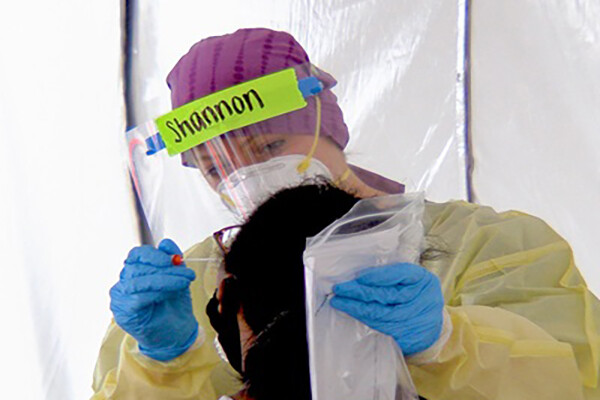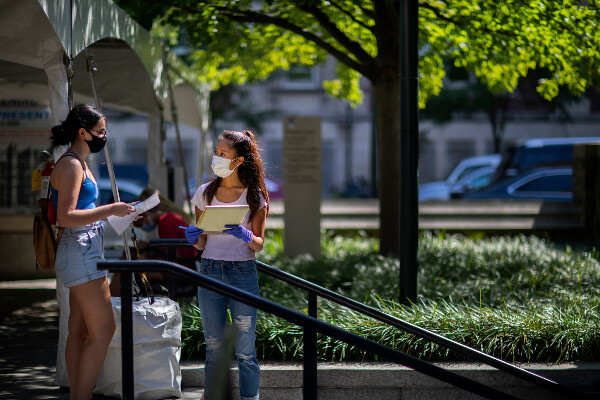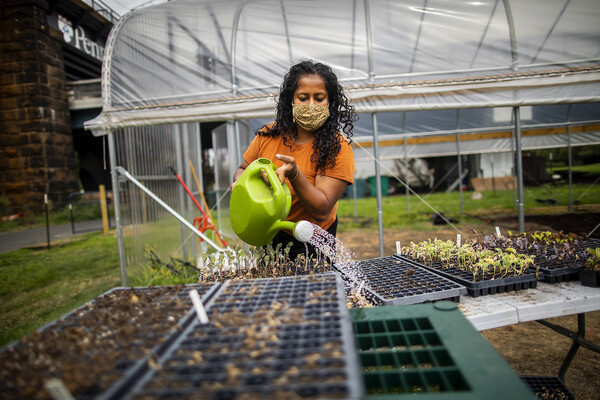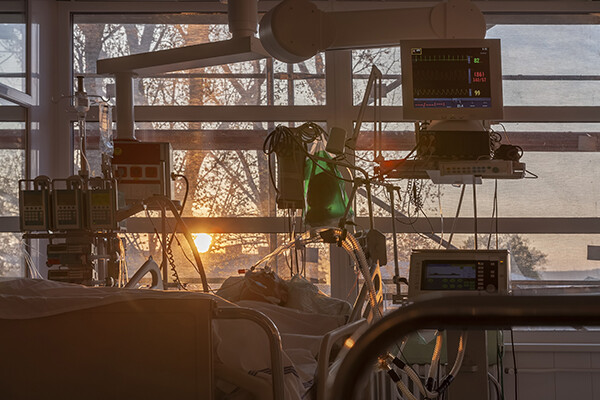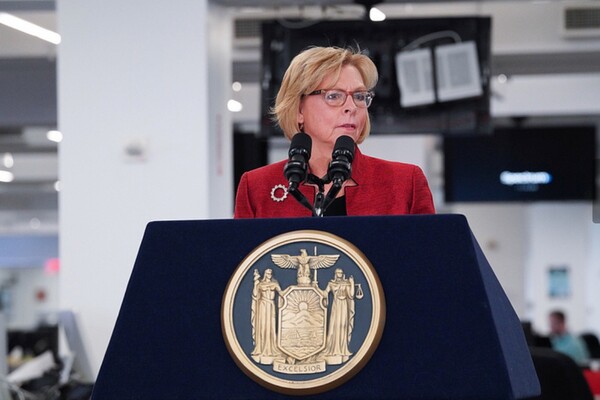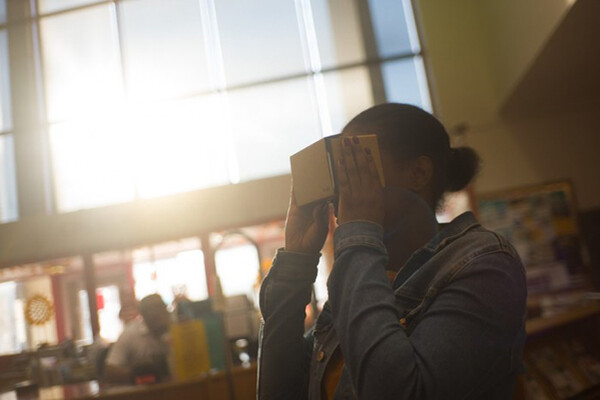11/15
Public Health
To catch and contain COVID-19, testing is step one
Penn Medicine is partnering with sites around the city to offer COVID testing, contributing to 9% of all testing in the state.
Fatal police shootings among Black Americans remain high, unchanged since 2015
Violent encounters with police represent a significant cause of morbidity and mortality in the U.S., especially among Black, Indigenous, and people of color. A new study characterizes trends and quantifies inequities across racial/ethnic groups.
An update on COVID-19’s impact on the University
At the October University Council meeting, key milestones in Penn’s reopening process were discussed, as well as the role of testing, contact tracing, and compliance with the Campus Compact in Penn’s COVID-19 mitigation strategy.
Contact tracing: A piece of a multilayered campus public health strategy
With the goal of mitigating the spread of COVID-19 and supporting the community with health guidance and information, contact tracing is part of Penn’s systemic approach to keeping the campus healthy during the pandemic.
Past successes, future questions as United Nations turns 75
Perry World House held a series of virtual talks with global leaders looking at the organization’s current efforts, ongoing struggles, and future.
A farm for the community
The Food and Wellness Collaborative, which emerged from the ‘Your Big Idea’ competition, has turned an expanse of turf into a productive growing space.
Is your drinking water toxic? This app may help you find out
A new tool developed by Penn Medicine researchers informs users about their potential exposure to hydraulic fracturing chemicals.
U.S. COVID deaths may be underestimated by 36%
The research team found that more of these deaths occurred in places with greater income inequality, more non-Hispanic Black residents, and other factors indicating a pattern related to socioeconomic disadvantage and structural racism.
Across U.S. Catholic archdioceses, child protection policies vary widely
A report from CHILD USA, led by Professor of Practice Marci Hamilton, found that such policies lack uniformity, aren’t comprehensive, and often don’t take a victim-centered approach.
Virtual reality trains public to reverse opioid overdoses
A group of interdisciplinary researchers from Penn and the Philadelphia Department of Public Heath have developed a virtual reality immersive video training aimed to save lives from opioid overdoses.
In the News
Got canker sores? Try switching your toothpaste
Richard Wender of the Perelman School of Medicine says that canker sores often start with a minor trauma to the mucosal lining, like a sharp edge on a tooth or a pair of prickly braces.
FULL STORY →
FDA Study finds infectious H5N1 bird flu virus in 14% of raw milk samples
Patrick E. Jamieson of the Annenberg Public Policy Center says it is important that anyone planning to consume raw milk be aware that doing so can make you sick and that pasteurization reduces the risk of milk-borne illnesses.
FULL STORY →
Colorado has the most cases of bird flu among dairy cows in the U.S.
The School of Veterinary Medicine has developed a bird flu vaccine that is to be tested by the U.S. Department of Agriculture.
FULL STORY →
This Juneteenth, we must invest in our future as well as remember our past
Victor Roy, an incoming assistant professor at the Perelman School of Medicine, writes that “baby bonds” could help mitigate the worsening racial wealth gap.
FULL STORY →
Column: How a blunder by a respected medical journal is fueling an anti-vaccine lie
Jeffrey S. Morris of the Perelman School of Medicine says that even with a 100% effective vaccine, there would have been high levels of morbidity and mortality from COVID-19 in 2021.
FULL STORY →
RFK Jr.’s vaccine misinformation campaign started after he ignored a Philly doctor
Paul Offit of the Perelman School of Medicine and Melanie Kornides of the School of Nursing comment on Robert F. Kennedy’s misinformation campaign against vaccines.
FULL STORY →




